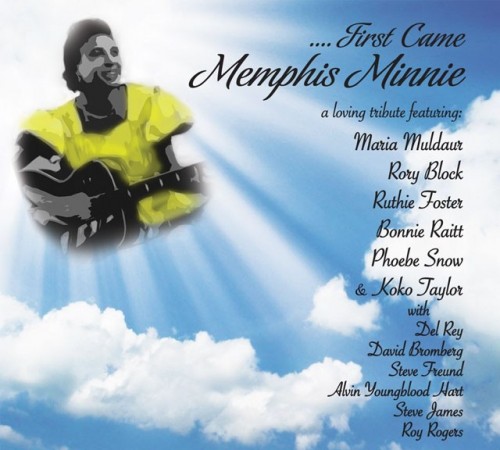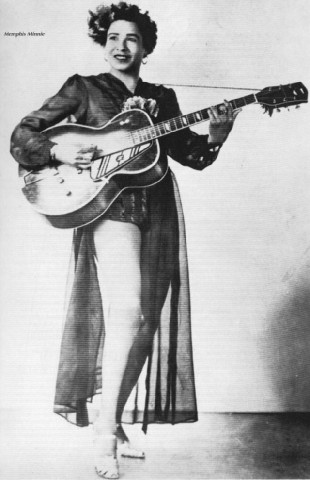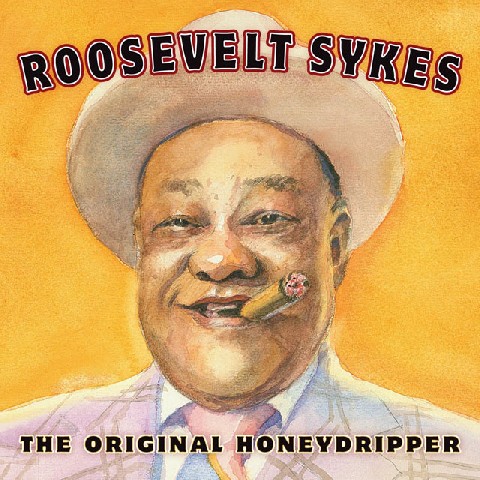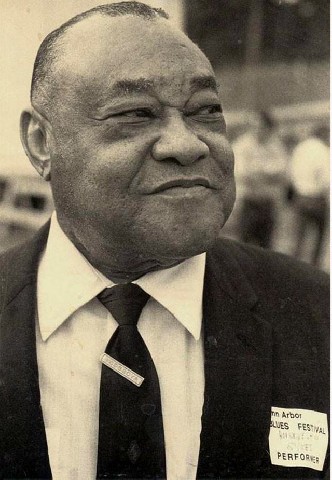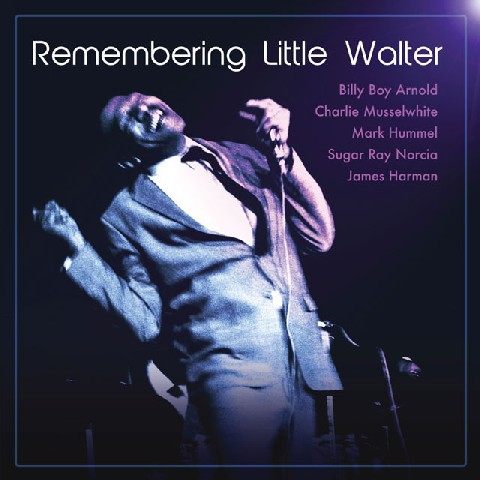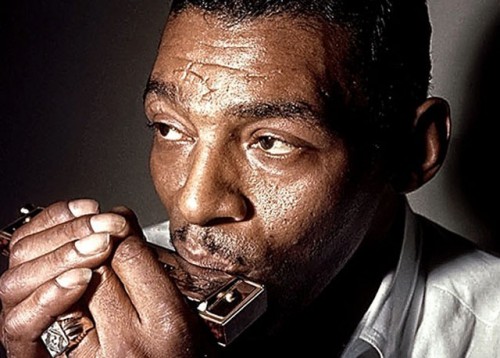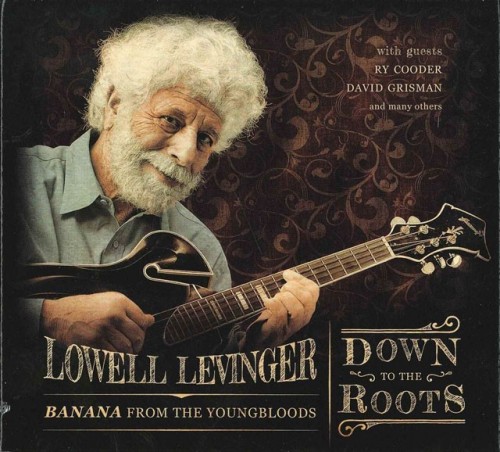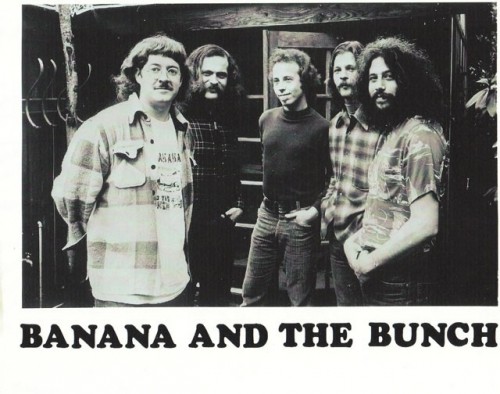Blues For Christmas - Part I
Homage to Roots
By: David Wilson - Dec 14, 2014
As a musical genre, Blues can be compared to the environmental concept of an invasive species. Once an organic hybridization of southern rural string-band music and gospel with spiritual flavorings, (and don’t I know that such a simplistic assertion will, in many circles, precipitate multiple academic arguments), the form has crossbred, mutated and intruded, mutated again and again in genre after genre. Some formulations have resulted in brilliant artistry while others tend more toward travesty.
While once upon a time, I could sample every new release, these days the flood of product is just plain overwhelming. Nobody can listen attentively to it all or discover all the superb releases. I have remarked upon the following because they are the best I have heard over the past year or so and worthy of your attention for their artistic merit alone as well as for how they honor their Blues origins.
First Came Memphis Minnie
a loving tribute featuring:
Maria Muldaur
Rory Block
Ruthie Foster
Bonnie Raitt
Phoebe Snow
Koko Taylor
Stony Plains Recordings
SPCD 1358
By the time she was a teen, Lizzie “Kid” Douglas, was out on her own, playing on street corners and in the ways of street kids scraping by. Twenty years later, wed to and partnered with Kansas Joe McCoy, the pair were discovered playing together for dimes in front of a Memphis barber shop by a Columbia Records agent. According to Wikipedia during recording Lizzie was dubbed Memphis Minnie and the pair recorded as Kansas Joe and Memphis Minnie.
Maria Muldaur, the force behind this compilation and tribute, handles the vocals on eight of a baker’s dozen of Memphis Minnie classics. Her performances alone would make this an exceptional addition to any musical collection, let alone one exclusively Blues. The addition of the other performers here demonstrates the universality of the material and how responsively each song reshapes itself to the nuances of Raitt, Block, Snow, Foster and Taylor.
Opening with “Me And My Chauffeur Blues,” long a Maria standard, Roy Rogers brightens the chestnut with his sensitive guitar accompaniment. Bonnie Raitt follows with a stunning heartfelt lament, “Ain’t Nothing In Ramblin’.” performance by, this release is one sparkling gem after another. Each of the ladies seems to find a way to personalize Minnie’s material in unique fashion. Although I had never before thought to consider Phoebe Snow a blues singer, her performance of “In My Girlish Days” leads me to reconsider, having discerned a subtlety beyond any I might previously have expected. Ruthie Foster’s treatment of “Keep your Big Mouth Closed” is snarky and Koko is as brassy and strident as ever closing out the set with “Black Rat Swing.”
There is not a false emotional note here, each of these artists making this tribute to Minnie as Minnie herself did, personal, poetic and passionate.
The Original Honeydripper
Roosevelt Sykes
Blind Pig Records
BPCD 5155
“Easy Papa Johnson”, “Dobby Bragg” and “Willie Kelly” are all recording aliases for Roosevelt Sykes recordings for different labels as far back as 1929. His career began at age 15, performing at work-camps from New Orleans to St. Louis to all male audiences for which he developed a repertoire of sexually explicit material, some collected some original. The more sophisticated double-entendre songs, adopted for slightly more respectable establishments certainly seemed risqué to the mixed audiences of those times though now may seem quite tame.
Sykes, a master of Stride (http://en.wikipedia.org/wiki/Stride_%28music%29) and Boogie piano styles, plays with an unflagging exuberance that complements his blues shouting style of vocals. He not only charms the innocent, but incites foot-tapping, head bobbing and pelvic animation guaranteed to elicit blushes among the more strait laced of us.
Both diction and innuendo are clear and unmistakable. Despite inventive explanations, little doubt remains regarding the derivation of his title, the Honey Dripper.
Originally released on vinyl in 1977, and with the addition of two outtakes from the same recording session, the fourteen numbers on this release were made from recording two nights of performances at the Blind Pig venue in Ann Arbor, Michigan. Blind Pig, the label, is a descendant of that club.
There is no filler here. From “Cow Cow Boogie” all the way through to “Dirty Mother For You” our attention remains attentive to his lyrics while trying to understand how in the world his right hand knows what his left hand is doing.
Roosevelt Sykes is truly a Blues treasure, an artist from whose body of work much contemporary blues piano music has descended.
Remembering Little Walter
Billy Boy Arnold
Charlie Musselwhite
Mark Hummel
Sugar Ray Norcia
James Harman
Blind Pig Records
BPCD 5154
The talent, contributions and influence of Little Walter are, if not with exceptions, universally acknowledged by Blues aficionados. In attempting to keep his riffs from being drowned out by aggressive guitar players, Little Walter adopted a small mike cupped in his hands to amplify his efforts and as a result became the first on any instrument, (as far as we know), to explore what is now common, electronic distortion. His emphasizing of the harmonica as a melodic instrument, rather than predominantly rhythmic changed the genre’s expectations of how the mouth harp could be used. His recording, “Juke”, in 1952, topped Billboard’s R&B charts for eight weeks. Even today it remains the only harmonica instrumental ever to top the charts. Little Walter is the only performer ever inducted into the Rock & Roll Hall of Fame as a harmonica player.
A knowledgeable, if rigid blues aficionado friend of mine, claims that Little Walter was so dominant in style and technique that all who have come after are but pale shadows. So, It is a wonder that it has taken so long, for a Little Walter tribute album such as this one to be conceived and released.
Each of the artists take the spotlight for two tracks, and all of them get to be featured in a grand finale performance of Little Walter’s “My Babe”. Guitarist, Little Charlie Baty,(no mean harpist himself as he shows on the finale) provides foundation and structure solid enough to keep the players in the zone, yet fluid enough to let them strut.
Producer, Mark Hummel, kicks off the program with lively interplay with both guitarists on “I Got To Go” and returns a bit later, chromatic in hand for a moving if doleful rendition of “Blue Light.”
Charlie Musselwhite offers a brief course on Walter’s bag of tricks with his performance of “Just A Feeling” and then delivers an engaging and playful version of “One Of These Mornings.”
Billy Boy Arnold may well be at the peak of his skill even after all these years and provides ample evidence with the period shuffle You’re So Fine taking me right back to 1953. “Can’t Hold Out Much Longer” is one of Billy’s favorite Little Walter songs and his treatment from opening fanfare to final fade is primo Southside Chicago Sound.
James Harman offers a mellower treatment of “It’s Too Late Brother” but gives us a frenetic romp on “Crazy Mixed Up World.”
Sugar Ray Norcia pleased me immensely with “Mean Old World,” a tune he has performed so many times his association with it will be remembered far into the future. “Up The Line,” is just plain perky.
The grand finale, “My Babe,” with everybody chipping in a solo is interesting and every listener will find one of the performances to be their favorite, Arnold and Musselwhite’s are mine, but that may have more to do with my personal experience than anything else.
In summation no Blues collection can be called complete without a copy of Remembering Little Walter
Down To The Roots
Lowell Levinger
Grandpa Raccoon Records
GR5249
Lowell Levinger, more commonly known to musicians and fans as Banana, was a seminal member of the ‘60s group, The Youngbloods. In the 1962 Boston metro scene such a soubriquet was definitely bizarre and primarily to draw attention to the musical group he nominally led, “Banana and the Bunch, Old Timey Music with a peel.”
Today, his passion for vintage stringed instruments which includes buying, selling and collecting keeps him in the material necessities of life, but making music is still the balm of his spirit, ample proof of which is this all acoustic, blues-driven album.
With a clear and distinct voice flavored with just enough gnarliness, each and every phrase receives a proper pinch of passion. The recordings made over a period and in different locations benefits from Levinger’s long time associations with many of our most creative and accomplished musicians.
The program lifts off with “Married To The Blues“ and with Ry Cooder on slide guitar lending delicate nuances to the vocal performance. Barry Melton does the same a bit later on “Love Is A Five Letter Word” and Dave Grisman provides an exquisite touch to “Blues My Naughty Sweetie Gave To Me,” which seemed to me to be a bit of an homage to Jim Kweskin’s version of the same. The classic “Nobody Knows You When You’re Down And Out,” is restrained and passionate all at once.
There are 15 cuts, some classics, some obscure, some originals, but no throwaways. They cover a wide range of blues stylings, country, funk, jazz and pop, and Neapolitan(?) “L’Italiano” is a bonus track lovingly produced. Levinger’s instrumental technique leads on most of them and with each re-listening I detect nuances and subtleties that further charm this writer’s ears. This cd is now available on Lowell’s website.


